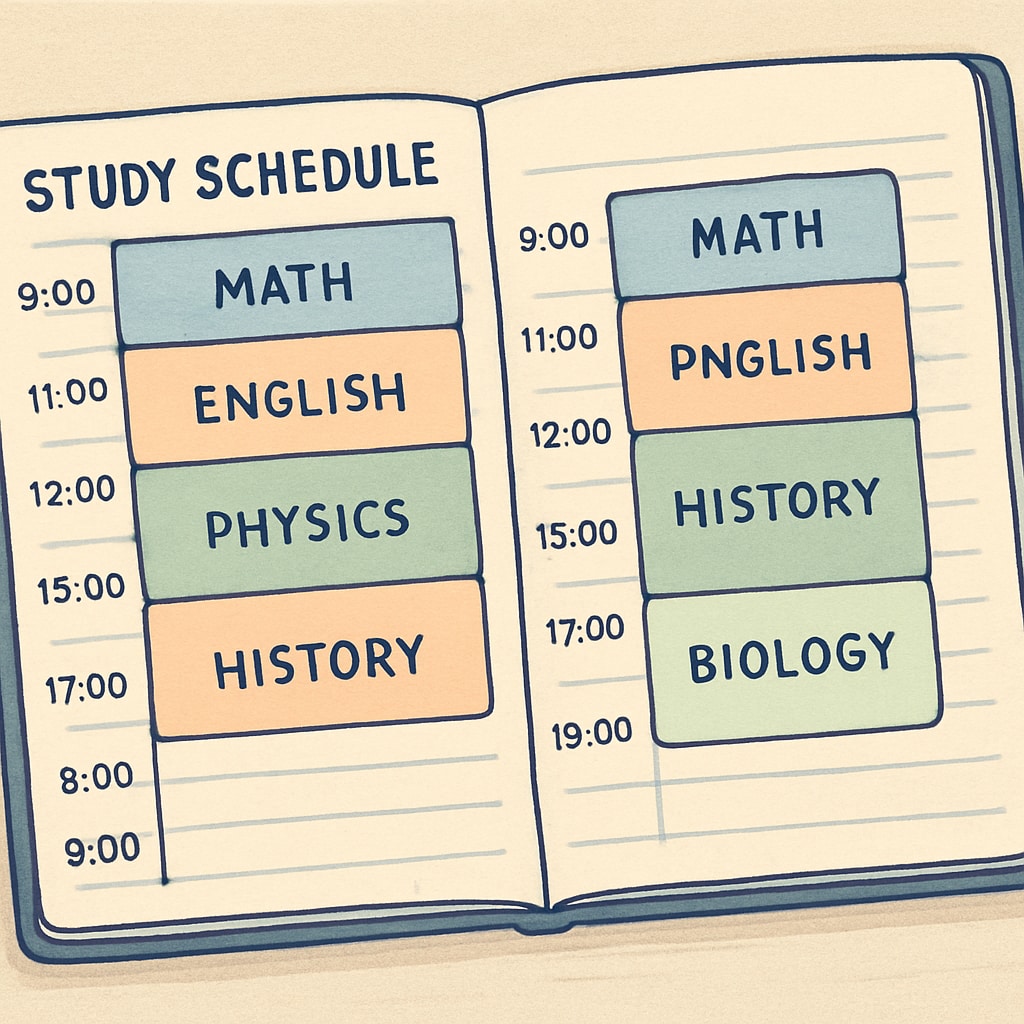Facing multiple failing exams while pursuing a physics degree can feel overwhelming. However, with strategic time management and focused preparation, it is possible to overcome this academic hurdle. This article outlines practical steps to help you tackle multiple subjects efficiently, maximize your study outcomes, and regain control of your academic journey. Whether you’re battling time constraints or struggling to prioritize, these strategies will guide you toward success.

Prioritize Your Exams Based on Impact and Difficulty
When preparing for multiple exams, the first step is to prioritize. Identify which subjects are most critical to your degree progression and which exams pose the greatest difficulty. For instance, if failing a particular physics course could delay graduation, allocate more time to that subject. Once you’ve determined your priorities, divide your available study time proportionally to address each subject effectively.
Use the following prioritization method:
- Impact on Degree: Focus on courses essential for your physics degree completion.
- Difficulty Level: Assign extra study time to challenging topics or subjects.
- Exam Schedule: Consider the order of exams to ensure you’re prepared for the earliest ones first.
Prioritization ensures you don’t waste time on less critical areas while neglecting subjects that could significantly affect your academic future.
Optimize Time Management with a Study Schedule
Efficient time management is the cornerstone of preparing for multiple exams under pressure. Begin by creating a detailed study schedule that breaks down your available days into dedicated blocks for each subject. Ensure the schedule includes time for review sessions, practice exams, and short breaks to avoid burnout.
Follow these time management tips:
- Set Realistic Goals: Break large topics into manageable sections to cover them systematically.
- Use Time Blocks: Adopt techniques like the Pomodoro method to maintain focus during study sessions.
- Track Progress: Regularly assess your understanding of each subject to make adjustments if needed.
Tools like Google Calendar or study apps can help you stay organized and track your progress. As a result, you can efficiently allocate your limited time to maximize productivity.

Focus on Key Concepts and Practice Actively
When preparing for exams in a short timeframe, it’s essential to focus on high-impact areas. Identify the key concepts that are most likely to appear on the exams and prioritize your review accordingly. For physics-related courses, focus on core principles, formulas, and problem-solving techniques commonly tested.
Active learning methods such as solving practice problems, summarizing notes, and teaching concepts to others are more effective than passive reading. For example:
- Practice Exams: Simulate real exam conditions to familiarize yourself with the format and identify weak areas.
- Concept Mapping: Create visual diagrams to connect related topics and reinforce understanding.
- Group Study: Collaborate with classmates to discuss complex topics and share insights.
By focusing your efforts on essential material and using active learning strategies, you can enhance retention and improve your performance on exam day.
Maintain Mental and Physical Well-Being
Preparing for multiple failing exams can take a toll on your mental and physical health. However, neglecting your well-being can ultimately harm your performance. Incorporate self-care practices into your routine to ensure you stay focused and energized.
Consider these tips for maintaining balance:
- Get Adequate Sleep: Aim for 7–8 hours of sleep each night to improve memory and concentration.
- Stay Active: Engage in light exercise to reduce stress and boost mental clarity.
- Eat Nutritiously: Consume balanced meals to fuel your brain and body.
- Take Breaks: Allow short mental breaks to recharge and prevent burnout.
Remember, maintaining your health is as important as preparing for your exams. A clear and focused mind will help you tackle even the toughest challenges effectively.
Conclusion: Turning Challenges into Opportunities
Facing multiple failing exams while pursuing a physics degree may feel like an insurmountable challenge, but it’s an opportunity to develop resilience and improve your study habits. By prioritizing your exams, managing your time effectively, focusing on key concepts, and taking care of your well-being, you can turn the situation around. Success is within reach—even in the face of adversity.
Take proactive steps today to build a strong foundation for your exams and regain control of your academic journey. With determination and the right strategies, you can transform this difficult period into a stepping stone toward future achievements.
For further reading on study techniques, visit Education on Wikipedia and Education on Britannica.


